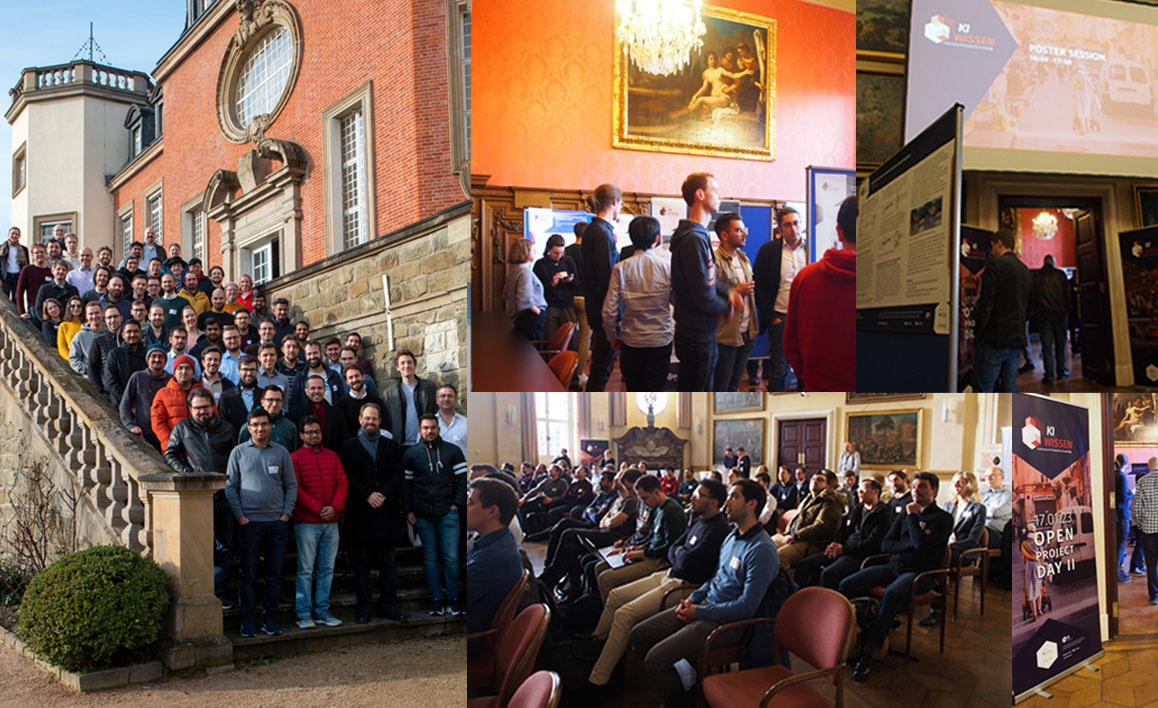Second Turn of Open Project Days in Sankt Augustin
17.01.23 - For the second time, the partners of the KI Familie projects (KI Wissen, KI Delta Learning, KI Data Tooling) have met to exchange information on efficient and knowledge-based AI systems. More than 90 attendees from industry, SMC and science took the opportunity to get an update on the overall project progress as well as to discuss details with partners directly and in person.
The second Open Project Day was held on January 17, 2023 by the KI-Wissen team under the helm of its consortium leader Dr. Jörg Dietrich (Continental AG). The event took place at Schloss Birlinghoven near Sankt Augustin, on the grounds of the Fraunhofer Institute for Intelligent Analysis and Information Systems IAIS. The Institute is one of 15 project partners where Benjamin Wulff is co-leading the “Knowledge Extraction” subproject. Each of the four subprojects – “Knowledge Integration”, “Knowledge Extraction”, “Knowledge Conformity” as well as “Enabler, Integration and Demonstration” – was featured during the event.
Ernst Stöckl-Pukall from the project-funding German Federal Ministry for Economic Affairs and Climate Action opened the meeting together with Dr. Jörg Dietrich. Dr. Ulrich Eberle of Opel Automobile / Stellantis and Prof. Dr. Daniel Neider of the Technical University of Dortmund held insightful keynotes on the topics of “Simulation-based Methods for Development, Training and Validation of Automated Driving” and “Safety Guarantees for Neural Networks”. In addition, all four subproject leaders reported on their current work and achieved milestones. An extensive poster session marked the end of the Open Project Day.
When completed in December 2023, the KI-Wissen project will have created a comprehensive ecosystem for the integration of knowledge into the training and validation of AI functions in autonomous vehicles. In contrast to previous approaches, training and validating AI for autonomous driving no longer only focuses on optimizing huge amounts of data; it now integrates already available knowledge and traffic context data. By doing so, the training efficiency of AI functions increases and AI decisions can be better analyzed and understood.
Images: Fraunhofer IAIS, EICT
